
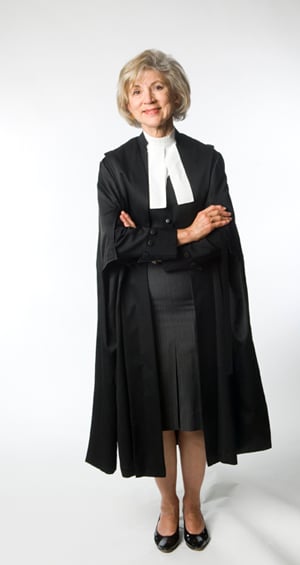
Love to hate them but lists of the tops in any profession are still compulsive reading. Canadian Lawyer is stepping into the fray with the Top 25 Most Influential in the justice system and legal profession. As this is the first year, our list will undoubtedly be controversial but we are ready to brave the slings and arrows of the profession.
The Top 25 Most Influential is not just about bright stars, big deals, or number of media mentions — although those may play a part. What sets our list apart is that we have endeavoured to select the most influential within the law over the last 18 months, looking at every area of practice, government, and the judiciary. It’s not about power or influence but both. For instance, some lawyers may get the billion-dollar deals but may not have influence in other areas. Who are behind cutting-edge advocacy and getting the ear of government? The judiciary obviously wields power but who hold positions that really have an impact? It’s about respect, ability to influence public opinion, and help shape the laws of this country; contribution to the strength and quality of legal services; and social and political influence and involvement. It can include politicians and regulators, but only if they are lawyers and are still in the legal field.
It’s no surprise then that Chief Justice Beverley McLachlin comes in at the No. 1 spot. But close behind are two well-deserving practitioners: James Lockyer and Brian Greenspan. The remaining Top 25, as voted by our esteemed judging panel (see page 39), are then listed in alphabetical order and include lawyers of influence from a variety of spheres.
There was definitely some spirited debate among our internal and external judges over who to include and disagreement over the final list. As panellist Yves Fortier of Ogilvy Renault LLP notes: “While I certainly agree that the 25 lawyers on this list qualify as 25 of the most influential lawyers in Canada, I cannot subscribe to the conclusion of the panel that they are the ‘top 25 most influential lawyers’ in Canada. In addition, I regret very much the fact that not one lawyer on that list is from Quebec, with the exception of my friend Irwin Cotler, who spends most of his time today in Ottawa. During the process, I put forward names of some Quebec lawyers who, I argued, should be included on any such list. Unfortunately, none were considered worthy of that accolade by my co-judges. I believe that this seriously impairs the credibility of the process and the final rankings.”
The criteria meant some powerful corporate lawyers were left out as well as former and current politicians, whose influence has waned or who aren’t lawyers. A few others didn’t make it onto the ballot due to timing but deserve a few words. In April, House of Commons Speaker Peter Milliken handed down a well-reasoned ruling on whether the government had breached parliamentary privilege by failure to comply with a Commons’ order that the government must produce uncensored copies of documents in the Afghan detainee affair. He settled the question of whether Parliament is supreme over the government and its ministers, ruling yes it is. As well, former Supreme Court justice John Major’s report into the Air India bombing also had quite an impact and has provided some long-needed closure for the families but also a blueprint for better communication between law enforcement officials as well as ways to investigate and prosecute terrorism.
But in the end the final list was arrived at democratically. So without further ado, find our list below (or click here to view a quick video).
Disagree with our choices? Did we miss someone obvious? E-mail your feedback to [email protected] or leave a comment at the end of this article. We’ll be doing it all again next year.

1) Chief Justice Beverley McLachlin
Chief justice, Supreme Court of Canada, Ottawa
It’s safe to say there will be little debate about Chief Justice Beverley McLachlin’s placement at the top of this list. She was arguably the clear-cut No. 1 pick from the start, and our panellists have backed this up by voting her to the top spot. In this day and age, her career is virtually unparalleled. She was the first woman to be named chief justice, making her an obvious trailblazer. She has led the Supreme Court of Canada for the last 10 years after being first named to the court in 1989. Previously, she served as chief justice of the British Columbia Supreme Court from 1988 to 1989; as judge of the B.C. Court of Appeal from 1985 to 1988; and a judge of the B.C. Supreme Court from 1981 to 1985. As the head of Canada’s top court, McLachlin holds the most powerful position in the judiciary in the country, and is capable of raising debate and handing down decisions that will set precedents and, in some cases, change the face of law itself. She is highly respected by members of the legal profession as well as lawmakers and the public — in short, her level of influence cannot be understated.
What panellists had to say:
“As a judge, she is simply primus inter pares.”
“Simply put, no other legal figure commands as much respect as McLachlin. She continues to show that the country’s top court is in good hands.”
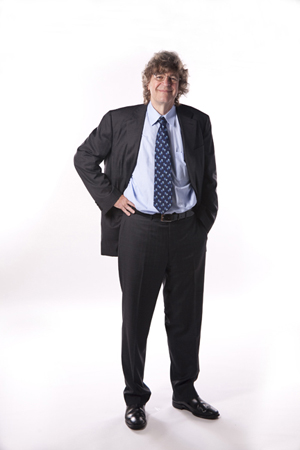
2) James Lockyer
Partner, Lockyer Campbell Posner, Toronto
Many consider James Lockyer a saviour to any wrongly convicted person in Canada, points out one of our judges. Lockyer has devoted his career to helping those who have been victims of a breakdown in the legal system. He is a founding director of the Association in Defence of the Wrongly Convicted, and through AIDWYC has been responsible for clearing the names of several individuals who were wrongly imprisoned. Perhaps the one that had the largest impact was the exoneration of Guy Paul Morin, who was wrongfully convicted of raping and murdering an eight-year-old girl in 1984. This led to a public inquiry in Ontario in 1997 on how to avoid future wrongful convictions. Other notable individuals whom Lockyer has helped include Steven Truscott, David Milgaard, and most recently Romeo Phillion, who was released from prison in April after serving 32 years for a murder he didn’t commit. At the beginning of 2010, The Globe and Mail named Lockyer its Nation Builder of the Decade for Justice — a fitting title for a man who unfailingly fights for those who have been wronged.
What panellists had to say:
“His lifelong commitment to ensuring the criminal justice system is held to the highest levels of accountability and transparency make him a remarkable figure deserving of everyone’s respect.”
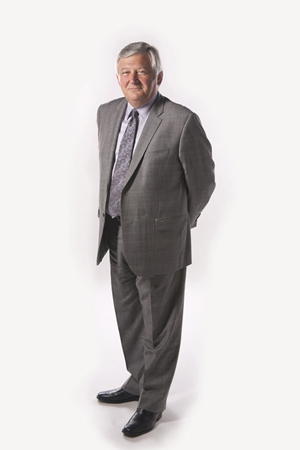
3) Brian Greenspan
Partner, Greenspan Humphrey Lavine, Toronto
For many years, Brian Greenspan was only known as the younger brother of well-known criminal lawyer Eddie Greenspan. In recent years, however, he has moved out of his brother’s shadow to ensconce himself at the plateau of Canadian criminal lawyers. If you follow the Canadian legal scene, you’ll undoubtedly know who Brian Greenspan is. He is consistently mentioned among the top lawyers in the country, and has taken part in some of the most high-profile cases of the last 20 years. He represented the Armour Pharmaceutical Co. in the tainted blood case that resulted in thousands of Canadians with hepatitis and HIV. The company was eventually acquitted after an 18-month trial. His clients have included well-known figures such as Alan Eagleson and Andrew Rankin. Already in 2010, he has acted in a number of high-profile cases, including Canada (Prime Minister) v. Khadr and Law Society of Upper Canada v. Neinstein. He has established himself as a lawyer who does not shy away from the limelight — on the contrary, he seems to relish it. Greenspan has based his career on taking high-profile cases that would make a lesser lawyer balk. His spot on this list can simply not be argued.
What panellists had to say:
“Continues to work on some of the country’s most interesting and controversial cases.”
“One of the most noteworthy lawyers in Canadian history.”
“Deserves high praise for his work on behalf of the wrongly convicted.”
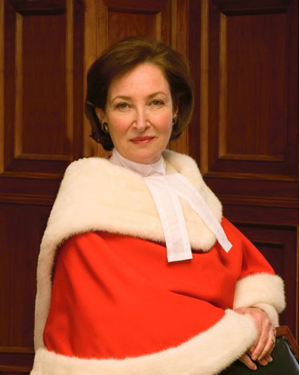
Justice Rosalie Silberman Abella
Justice, Supreme Court of Canada, Ottawa
Justice Rosalie Abella’s career speaks for itself — her extraordinary accomplishments and outspoken demeanor have made her more than worthy of a spot on this list. She was appointed to the Supreme Court of Canada in 2004, and was the first Jewish woman to be named to this position. Throughout her career, she has been an advocate for the role of children after the breakup of families. In her early years, she served as a commissioner on the Ontario Human Rights Commission, and was a member of the Ontario premier’s advisory committee on Confederation. Her accomplishments have been recognized many times by such groups as the University of Toronto, the Canadian Bar Association, and the Canadian Council of Christians and Jews, and she has received over two dozen honorary degrees.
What panellists had to say:
“Her decisions are often cited as practical and diplomatic.”
“She has spoken out about the need for the Canadian justice system to adapt to the changing world and understand technology and its impact on law.”
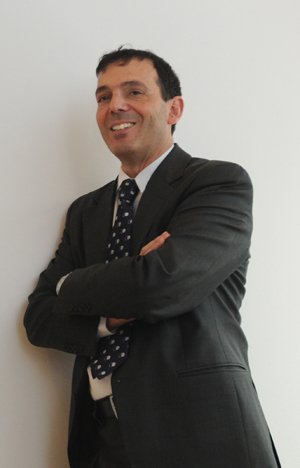
Frank Addario
Sack Goldblatt Mitchell LLP, Toronto
An expert of criminal and constitutional litigation, Frank Addario was the face of and one of the driving forces behind the Ontario criminal lawyers’ boycott of legal aid cases in 2009. The initiative, which Addario spearheaded as president of the Criminal Lawyers’ Association, resulted in the government of Ontario increasing legal aid fees, which greatly improves access to justice and delivery of legal services in the province. As a lawyer, Addario has appeared as counsel in every level of court in Ontario and in the Supreme Court of Canada. He also has a long history of volunteer work in the community, serving as director on boards for organizations such as Canadian Journalists for Free Expression and Jessie’s Centre for Teenagers.
What panellists had to say:
“Addario’s steady leadership and strong media presence during the Ontario legal aid boycott were key to the bar’s improbable victory in the controversial campaign.”
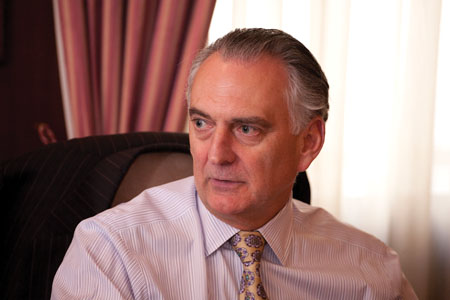
David Allgood
Executive vice president and general counsel, Royal Bank of Canada, Toronto
David Allgood has held his position at the Royal Bank of Canada, the largest financial institution in the country, since 2000. During this time, he has become a leader in the value-billing initiative in Canada, and has raised the bar for in-house counsel across the country. He was also the first to change the numbers of and working relationships with outside law firms, irrevocably changing the face of such relationships in the Canadian legal market. In 2009, he was recognized with the Excellence in Corporate Practice Award by the Association of Corporate Counsel. This past May, he was honoured with the lifetime achievement award at the Canadian General Counsel Awards, further cementing his status as one of the country’s top general counsel who is able to stickhandle both complicated deals and expectations of outside counsel.
What panellists had to say:
“He is changing the big client law firm relationship model in Canada.”
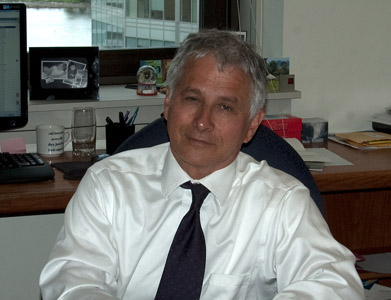
Joseph Arvay
Partner, Arvay Finlay, Vancouver
One of Canada’s leading litigators, Joseph Arvay specializes in class action litigation, corporate and commercial litigation, and aboriginal law. He has argued at every level of court including the Supreme Court of Canada, representing clients as diverse as the British Columbia Review Board to a University of Victoria pro-life students’ group. He previously served as senior counsel and general counsel for the British Columbia Ministry of the Attorney General, and has been involved in several high-profile cases in B.C. and throughout Canada. In 2005, he was awarded the Walter S. Tarnopolsky Human Rights Award, where he was described as “one of Canada’s most tireless civil rights and human rights lawyers who has made an exceptional commitment to human rights in this country.” Most recently, he was awarded the Trial Lawyers Association of British Columbia Bar Award in 2009. His latest battle is representing the Fight HST forces in their court battle against the B.C. government’s new tax.
What panellists had to say:
“Arvay only takes tough cases, is willing to fight for the underdog, and has achieved extraordinary results against huge odds.”
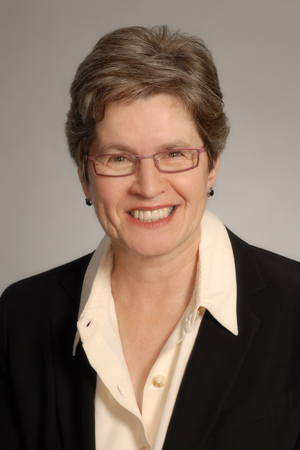
Sheila Block
Partner, Torys LLP, Toronto
Sheila Block is considered to be one of the top commercial litigators in Canada and has also been recognized as one of the country’s most influential women. She serves as the head of Torys’ Toronto litigation practice and has represented several key figures throughout her career, including former mayor of Toronto Mel Lastman, the National Hockey League Players’ Association, and the government of Quebec. She has also spoken and written extensively on advocacy and civil litigation, and has taught advocacy for the National Institute for Trial Advocacy in Canada, the United States, El Salvador, Rwanda, and Sierra Leone, to name a few. In 2006, she was recognized by the Ontario Bar Association with the award of excellence in civil litigation, and it’s clear that she is still at the top of this area of law.
What panellists had to say:
“Block is a best-in-class litigator.”
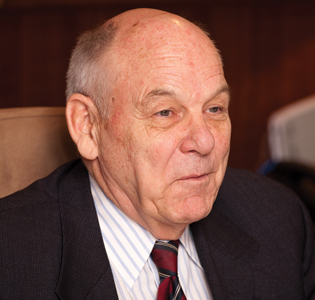
Justice Colin L. Campbell
Justice, Ontario Superior Court, Toronto
In recent years, Justice Colin Campbell steered the Task Force on the Discovery Process that led to the development of e-discovery guidelines for Ontario. His passion for justice and hard work is reflected in his tireless efforts on behalf of Sedona Canada and the Ontario e-discovery implementation committee. Lawyers applaud Campbell’s championing of best practices for dealing with electronic evidence so as to ensure the cost of litigation will not continue to prevent cases from being resolved on their merits. He sits on the Commercial List in Toronto and is a much sought-after speaker on electronic discovery issues, professionalism, and the efficient practice of civil law. Campbell is also a founding director of Pro Bono Law Ontario and sits as a member on its advisory board.
What panellists had to say:
“Lawyers commend Justice Campbell for having a good grasp of complex legal regimes and being ready to roll up his sleeves and assist with tailor-made, pragmatic solutions to any circumstance.”
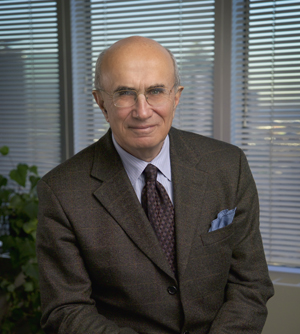
Earl Cherniak
Partner, Lerners LLP, Toronto
Arguably one of the most respected and decorated litigators in Canada, Earl Cherniak has been recognized with some of the highest honours in the country’s legal field. In 2008, he was the recipient of the Law Society of Upper Canada’s most prestigious award, the Law Society Medal. In 2004, he was the first recipient of the Ontario Bar Association’s award of excellence in civil litigation. He has been involved in many landmark cases and has earned his reputation as one of the most skilled lawyers in his area of practice representing clients such as Conrad Black and securities lawyer Joseph Groia.
What panellists had to say:
“The epitome of hard work, discipline, and organization. Professionalism, respect, and civility are his daily workers.”
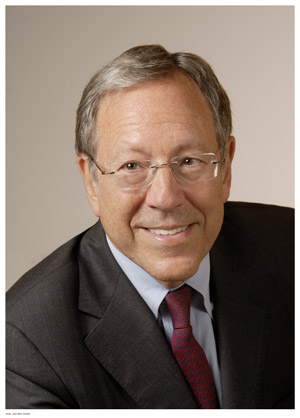 Irwin Cotler
Irwin Cotler
MP Mount Royal, Montreal
Irwin Cotler may be the most well-known human rights lawyer in the country. He is currently a member of Parliament, a position he was first elected to in 1999 — at the time, his victory (with 92 per cent of the vote) was considered to be one of the most stunning electoral victories of the century. His career continued to flourish when, in 2003, then prime minister Paul Martin named Cotler the minister of Justice and attorney general. He played a key role in making the Supreme Court of Canada the most gender-representative Supreme Court in the world when he appointed justices Rosalie Abella and Louise Charron. As a noted human rights and peace activist, Cotler’s place on this list remains solid.
What panellists had to say:
“He is Canada’s leading expert on international law and human rights.”
“As a member of Parliament, Cotler continues to argue for a balanced and fair justice system.”
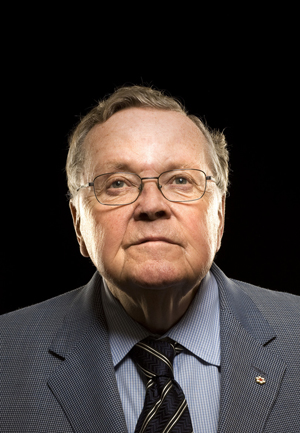
Purdy Crawford
Counsel, Osler Hoskin & Harcourt LLP, Toronto
Hailing from Nova Scotia, Purdy Crawford’s career in the realm of corporate and commercial law has been a long and successful one. He became a partner at Osler Hoskin & Harcourt LLP in 1962 and by 1970 had moved his way up the ranks to senior partner. He left the firm from 1985 to 1995 to join Imasco Ltd. as CEO. After rejoining Oslers in 2000, Crawford took on the role of counsel, a position that he still holds today. Recently, he played a key role in the restructuring effort of $35 billion worth of asset-backed commercial paper that had grown stagnant on the Canadian market in 2007, taking a heavy toll on investors. He was also commissioned by the federal government to oversee a proposal for the establishment of a single securities regulator in Canada. His career is one that has been recognized many times throughout the years; he became an officer of the Order of Canada in 1996, was inducted into the Nova Scotia Business Hall of Fame in 1997, and in 2000 was inducted into the Canadian Business Hall of Fame and named Ivey Business Leader of the Year.
What panellists had to say:
“His work on the related issues of a single securities regulator and the ABCP fiasco will have a direct impact on the nature of Canadian corporate law as it develops in the post-recession period.”
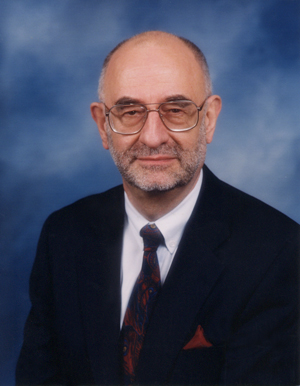
Sir Graham Day
Counsel, Stewart McKelvey, Halifax
Sir Graham Day’s accomplishments during his career speak for themselves. In 2006, he was inducted into the Canadian Business Hall of Fame, joining a select group of Canada’s top laureates. He was chancellor of Dalhousie University from 1994 to 2001, and he has served as independent director of several major companies, including Sobeys Inc., Moosehead Breweries Ltd., Extendicare Inc., and Scotia Investments Ltd. But perhaps his most significant personal accomplishment came in 1989 when he was knighted by Queen Elizabeth II for his services to the British industry. As a lawyer and businessman, Day is in a class of his own.
What panellists had to say:
“Sir Graham is someone to be celebrated.”
“His is a remarkable story.”
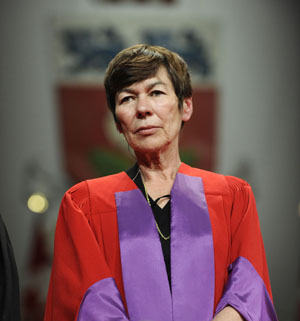
Marlys Edwardh
Marlys Edwardh Barristers PC, Toronto
One of Canada’s most prominent civil rights lawyers, and an internationally known figure, Marlys Edwardh consistently and unfailingly defends those whose rights have been denied or withheld. She served as co-counsel in the case of Maher Arar, which yielded significant media coverage and eventually led to Arar being cleared of any illegal activities. In 2005, she was the first recipient of the Canadian Journalists for Free Expression’s Vox Libera award, which recognizes a Canadian who has demonstrated an outstanding commitment to the principles of free expression. And just in time for Canada Day this year, she was named a member of the Order of Canada. Her consistent performances in high-profile cases have thrust her to the forefront of the Canadian legal field.
What panellists had to say:
“Another lawyer who continues to provide a strong voice to help keep government power in check.”
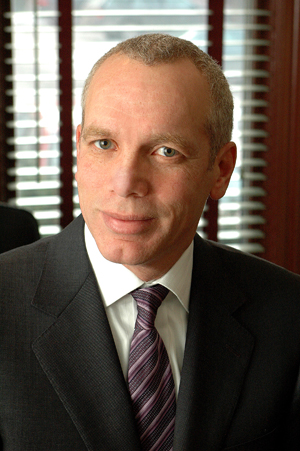
Julian Falconer
Senior partner, Falconer Charney LLP, Toronto
Julian Falconer has gained notoriety in the Canadian legal community for his role in a number of high-profile cases and his advocacy for human rights. He was a part of Canadian legal history when he acted on behalf of Maher Arar. He also rose to prominence as the head of the Toronto school board’s School Community Safety Advisory Panel, which looked into the conditions that existed at C.W. Jefferys Collegiate Institute prior to the shooting death of 15-year-old Jordan Manners. That role led to numerous awards related to his activism, including Pride News Magazine’s African Canadian Achievement Award, and the Urban Alliance Race Relations Medal. His alma mater, the University of Toronto, has named him one of the 20th century’s 100 most notable graduates. Continuing his advocacy role, this summer Falconer is representing four independent journalists in G20 summit-related complaints against Toronto police.
What panellists had to say:
“Deserves a spot high on any list of the country’s top advocates.”
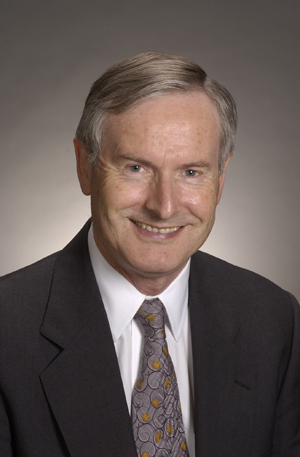
Peter Hogg
Professor emeritus and former dean of Osgoode Hall Law School and scholar in residence at Blake Cassels & Graydon LLP, Toronto
Peter Hogg is considered the leading authority on constitutional law in Canada, and his writings have reportedly been cited more in the Supreme Court of Canada than any other single source. Hogg, who was originally educated in New Zealand, has received numerous honours and awards, including being made an officer of the Order of Canada in 1991 and was elevated to companion of the Order in 2003, receiving the Law Society Medal from the Law Society of Upper Canada in 1996, and a slew of honorary doctorates.
What panellists had to say:
“It is difficult to overestimate the influence that Hogg has had on the way in which we think about constitutional law in Canada.”
Edward ‘Ted’ Hughes
Retired judge, Vancouver
During his 50-plus-year career, Ted Hughes has seen and done it all. He became a judge in 1962 and in 1974 was promoted to the Saskatchewan Court of Queen’s Bench. After John Diefenbaker’s death in 1979, Hughes acted as an executor of the former prime minister’s estate. In 1980, he stepped down from the bench and moved to B.C. where he served as a legal adviser to the province’s attorney general. In 1990, he was appointed as B.C.’s first conflict-of-interest commissioner and oversaw an investigation that resulted in the resignation of Bill Vander Zalm, the premier of B.C., for mixing private business with public responsibilities. In the early part of the last decade, he acted as conflict-of-interest commissioner for the Yukon and Northwest Territories, and is currently overseeing a coalition against homelessness in Victoria.
What panellists had to say:
“When governments get into trouble in Western Canada, Hughes is the go-to guy to set things right.”
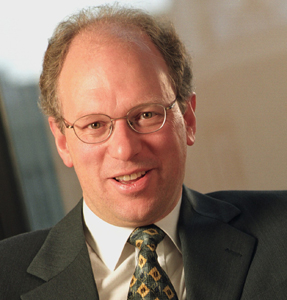 Doug Hyndman
Doug Hyndman
Chairman and CEO, Canadian Securities Transition Office, Vancouver
Doug Hyndman was chairman of the British Columbia Securities Commission for 22 years before he was chosen to head the Canadian Securities Transition Office in July 2009. He also served as chairman of the Accounting Standards Oversight Council, which oversees the setting of accounting standards in the business world, from 2005 to 2010. In his current position, he will steer the CSTO as it leads all aspects of the transition to a national securities regulator, including the development of the federal Securities Act, collaborating with provinces and territories, and developing and implementing an organizational and administrative transition plan. On July 13, Hyndman released the CSTO’s initial transition plan. As such, he’s likely to face a tough road ahead but at the same time will have great influence over the future and direction of business law in Canada, a role that can’t be understated.
What panellists had to say:
“A uniter and canny strategist.”
CORRECTION
If he thinks like one, looks like one, acts like one. . . . Some might say, in the parlance of the securities markets, that due diligence was somewhat lacking. Doug Hyndman, chairman and CEO of the Canadian Securities Transition Office in Vancouver was named one of The Top 25 Most Influential in the law in Canada. While he is and will have a great impact on securities regulation in this country, he did not officially meet the list’s criteria of being a lawyer. But as one of the many readers who wrote in to correct Canadian Lawyer, Hyndman is not a lawyer but “brilliant like one and thinks like one.” Perhaps our friends at one of the fine law schools across this country should consider him for an honourary law degree and bring him into the fold.
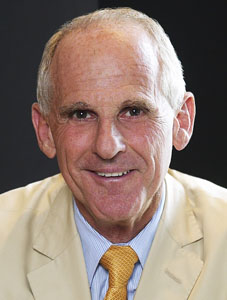
Alan Lenczner
Partner, Lenczner Slaght Royce Smith Griffin LLP, Toronto
Considered by many to be one of Canada’s leading litigators, Alan Lenczner is highly regarded by those in the legal profession. He is one of the co-founders of Lenczner Slaght Royce Smith Griffin LLP, one of Canada’s premier litigation practices, and has been a part of several groundbreaking cases (perhaps most notably the 1989 Lac Minerals Ltd. v. International Corona Resources Ltd.). Aside from his work inside the courtroom, he is also an established lecturer, and is well known among young lawyers. He’s representing the controversial Eleanor Clitheroe, ousted CEO of Hydro One Inc., who in June was denied a bid for more retirement cash — above her monthly pension of $25,637.08 — by the Ontario Court of Appeal.
What panellists had to say:
“Alan is a top-flight lawyer. But more than that, he was a pioneer in terms of law firm structure.”
“Continues to be retained by top-notch clients on some of the country’s most contentious litigation matters.”
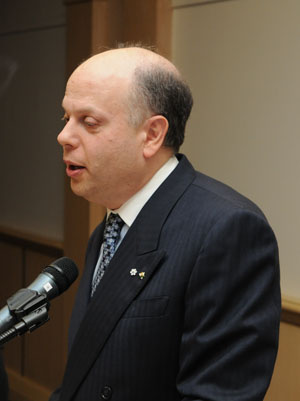
David Lepofsky
Ontario Ministry of the Attorney General, Crown Law Office, Toronto
Blind for much of his life, David Lepofsky has gained a reputation for being an advocate for the blind and disabled. He is a founding member of the Canadian Association for Visually Impaired Lawyers, and a former chairman of the Ontarians with Disabilities Act committee. He is now the chairman of the AODA Alliance, a disability consumer advocacy group. Lepofsky played an instrumental role in the battle to get equal rights for disabled persons included in the Charter of Rights and Freedoms. And, to top it all off, he was awarded the Order of Canada in 1995. At the Crown Law Office, he has argued criminal cases from the provincial level all the way to the Supreme Court of Canada. He is one of Canada’s most well-known and respected lawyers.
What panellists had to say:
“He continues to fight the good fight for disabled people everywhere.”
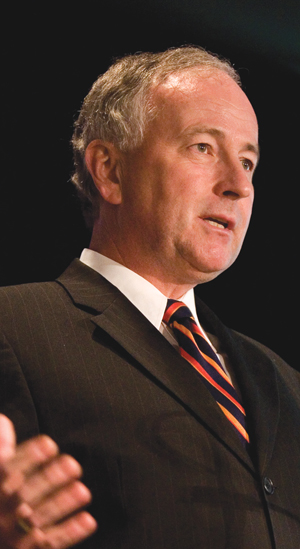
Rob Nicholson
Minister of Justice and attorney general of Canada, MP, Niagara Falls, Ont.
As the minister of Justice and attorney general, Rob Nicholson is clearly a central figure in the Canadian justice system. He has been involved with politics for years, and was first elected to Parliament in 1984. He was appointed to his current position in 2007, and during his tenure has been no stranger to controversy, particularly within the bar over much of the Conservative government’s wave of law-and-order legislation. Recently, he has come under heavy fire after he agreed to the extradition of Marc Emery to the United States. Emery, a well-known Canadian marijuana activist, is currently serving a five-year sentence in the U.S. for selling marijuana seeds, and while Nicholson has received criticism from Emery’s fellow activists and others, he would not be swayed.
What panellists had to say:
“He has a profound impact on law reform.”
“Deserves a spot on the list, regardless of any opposition to his controversial approach.”
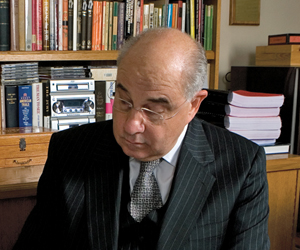
Richard Peck
Partner, Peck & Co., Vancouver
Criminal lawyer Richard Peck has been a part of some of the most notorious cases in Canadian legal history. In May, he acted as independent prosecutor for Ontario in the case of criminal charges of dangerous driving and negligence against former attorney general Michael Bryant in the death of cyclist Darcy Allan Sheppard. He controversially said charges should be dropped as there was no reasonable chance of conviction. In June, as special prosecutor once again in British Columbia, he announced he’d be revisiting the question of whether criminal charges should be laid against police in the death by Taser of Robert Dziekanski. Also of note, he led a team of nine lawyers and successfully defended Ajaib Singh Bagri, one of the men accused of being the mastermind behind the Air India bombing of 1985. As well, he represented John Robin Sharpe, who was charged with possession of child pornography. Based on Peck’s defence, the Supreme Court of Canada ruled that prosecution could not stem from works of imagination for personal use.
What panellists had to say:
“You need to get the big cases to have power and influence. Based on that, he belongs on the list.”
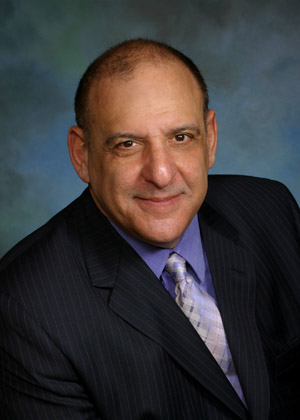
Harvey T. Strosberg
Senior partner, Sutts Strosberg LLP, Windsor, Ont.
With the rise of the class action bar in the Canadian legal field in the last 25 years, Harvey Strosberg has emerged as one of the country’s top class action lawyers and commercial litigators. He has consistently appeared on any list celebrating the top lawyers in Canada, and served as treasurer of the Law Society of Upper Canada from 1997 to 1999. One of his most famous settlements came during the hepatitis C class action, which settled for $850 million. In total, he has recovered over $1 billion for his clients, a statistic that played a significant role in landing him a spot on this list. He continues to front some of the largest class action cases in the country.
What panellists had to say:
“He’s one guy that defendants hope is not leading the charge on the other side.”
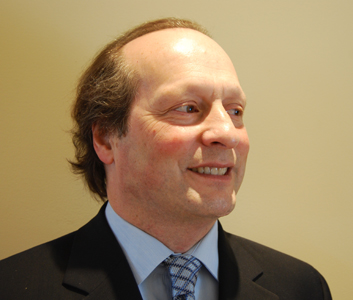
Lorne Waldman
Lorne Waldman & Associates, Toronto
Lorne Waldman is one of the top immigration and refugee lawyers in the country. He served as co-counsel for Maher Arar during the public inquiry into Arar’s deportation from the United States to Syria. In 2007, he was honoured by the Canadian Bar Association with the Louis St-Laurent award of excellence, recognizing his contributions to the legal profession. Waldman frequently contributes articles on human rights issues to various publications, and has been appointed an adjunct professor of law at the University of Ottawa law school and Osgoode Hall Law School. In June, he emerged as the representative plaintiff in a class action against publishing giant Thomson Reuters Corp. that claims lawyers’ copyright has been infringed through the reproduction and sale of their court documents through its Westlaw database.
What panellists had to say:
“Lorne Waldman has had a profound influence on how Canada handles national security law.”
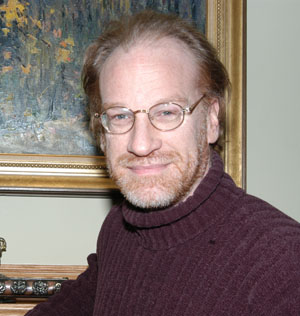
Alan N. Young
Associate professor, Osgoode Hall Law School, Toronto
During his colourful career, civil libertarian Alan Young has tackled many hard-hitting issues such as the legalization of marijuana. He is notorious for providing legal services to individuals whose alternative lifestyles have led them to the courtroom — one of his most significant cases was the “bondage bungalow” dominatrix case in 1998. As well, he is behind the constitutional challenge to Canada’s prostitution laws. While continuing to maintain his practice, which specializes in criminal law, he is also an associate professor at Osgoode Hall Law School, where he is the director of the Innocence Project, which involves LLB students in the investigation of suspected cases of wrongful conviction and imprisonment.
Our judging panel
We did run into some bumps along the way. As always, we strive to get representation from across the country but our judges from British Columbia as well as token parliamentarian agreed but didn’t come through and efforts to get a former member of the judiciary didn’t work out so well either. Nonetheless, an excellent panel of judges put forth almost 50 candidates from which our Top 25 were chosen.
External
Halifax: John MacL. Rogers, CEO, Stewart McKelvey
Montreal: Yves Fortier, chairman emeritus, Ogilvy Renault LLP
Toronto: Clay Horner, partner, Osler Hoskin & Harcourt LLP
Toronto: Paul Copeland, human rights lawyer and former Law Society of Upper Canada bencher
Ottawa: Eugene Meehan, partner, Lang Michener LLP and former Canadian Bar Association president
Edmonton: Anne McLellan, former attorney general of Canada, now counsel with Bennett Jones LLP and special faculty member at University of Alberta
In-house counsel: Melissa Kennedy, general counsel, corporate secretary, and senior vice president corporate affairs, Ontario Teachers’ Pension Plan
Legal academia: Ian Holloway, dean, University of Western Ontario law school
Internal
Gail J. Cohen, editorial director, Canadian Lawyer and Law Times
Glenn Kauth, editor, Law Times
Robert Todd, staff writer, Canadian Lawyer and Law Times
Kelly Harris, former editor, Canadian Lawyer InHouse
Ruth Epstein, vice president, Canada Law Book
Adam Lepofsky, president, RainMaker Group
This article was compiled with the research assistance of Bryan Smith.